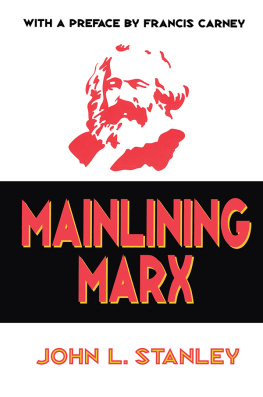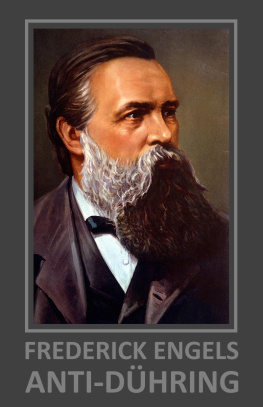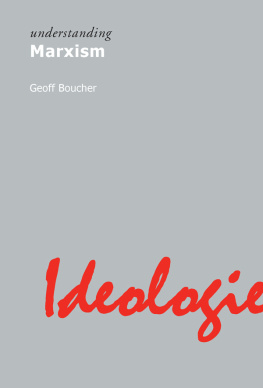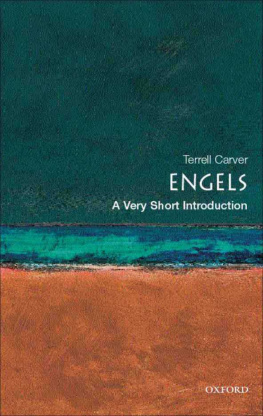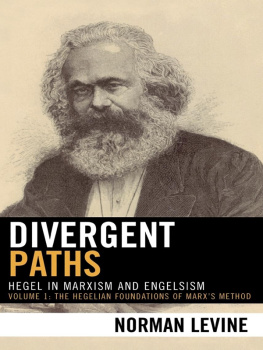Engels: A Very Short Introduction
Terrell Carver
ENGELS
A Very Short Introduction


Great Clarendon Street, Oxford OX2 6 DP
Oxford University Press is a department of the University of Oxford. It furthers the Universitys objective of excellence in research, scholarship, and education by publishing worldwide in
Oxford New York
Auckland Bangkok Buenos Aires Cape Town Chennai Dar es Salaam Delhi Hong Kong Istanbul Karachi Kolkata Kuala Lumpur Madrid Melbourne Mexico City Mumbai Nairobi So Paulo Shanghai Taipei Tokyo Toronto
Oxford is a registered trade mark of Oxford University Press in the UK and in certain other countries
Published in the United States by Oxford University Press Inc., New York
Terrell Carver 1981
The moral rights of the author have been asserted
Database right Oxford University Press (maker)
First published 1981 simultaneously in hardback and paperback First published as a Very Short Introduction 2003
All rights reserved. No part of this publication may be reproduced, stored in a retrieval system, or transmitted, in any form or by any means, without the prior permission in writing of Oxford University Press, or as expressly permitted by law, or under terms agreed with the appropriate reprographics rights organizations. Enquiries concerning reproduction outside the scope of the above should be sent to the Rights Department, Oxford University Press, at the address above
You must not circulate this book in any other binding or cover and you must impose this same condition on any acquirer
British Library Cataloguing in Publication Data
Data available
Library of Congress Cataloging in Publication Data
Data available
ISBN 0-19-280466-9
3 5 7 9 10 8 6 4 2
Typeset by RefineCatch Ltd, Bungay, Suffolk
Printed in Great Britain by
TJ International Ltd., Padstow, Cornwall
Preface
While there are many books on Marx and Marxism there are few books on Engels, and even fewer that take him seriously as a thinker. In this one I have attempted a close study of Engelss ideas. To a large extent I have allowed him to speak for himself, since his own words are suitably vivid. It has been my object to interest the reader in Engelss thought and its implications for contemporary social science and politics.
I am grateful to the University of Liverpool for granting me study leave to begin this book, and I am indebted to those who supported my application, as well as to my students there. I should like to thank Catherine Payne and Mary Woods for their careful and critical attention to my typescript, and Larry Wilde, Henry Hardy, Keith Thomas and an anonymous adviser for their very helpful suggestions.
I should like to dedicate this book to David McLellan.
Bristol
TERRELL CARVER
September 1980
Contents
List of illustrations
The Engels House Museum in Barmen (now Wuppertal), Germany, where Friedrich Engels was born in 1820
Ullsteinbild
Friedrich Engels at 19
Ullsteinbild
Engelss caricature of himself, August 1840: My hammock containing myself smoking a cigar
Cartoons by Engels, June 1839 (top left to right): World-weariness; Modern Stress and Strain; (above) Discord of Cologne; (top right) the Noble Modern Materialism; (below) Emancipation of Women; Spirit of the Times; Emancipation of the Flesh
Friedrich Engels, 1845
Ullsteinbild
Helene Demuth, servant to the Marx family and later housekeeper to Friedrich Engels
AKG London
Friedrich Engels in mid-life
Ullsteinbild
Friedrich Engels, c.1895 (the year of his death)
Bettmann/Corbis
The publisher and the author apologise for any errors or omissions in the above list. If contacted they will be pleased to rectify these at the earliest opportunity.
Abbreviations
I have used three collections of the works of Karl Marx and Friedrich/ Frederick Engels, since at the time of writing the Collected Works have advanced only as far as 1854. For these sets I have adopted a reference of the form: volume number, full stop, page number. Arabic, large roman, and small roman numerals are used for volume numbers according to the following scheme.
Collected Works (Lawrence & Wishart, London, 1975) have arabic numerals, e.g. 12.432 for volume 12, page 432.
Selected Works in two volumes (Lawrence & Wishart/Foreign Languages Publishing House, London/Moscow, 5th impression, 1962) have the large roman numerals I and II, e.g. II.432 for volume II, page 432. I have used this set because it contains material not included in the one-volume version currently in print.
Werke (Dietz, Berlin, 1956) have small roman numerals for volume numbers, e.g. xvi.432 for volume 16, page 432. Where English translations were not readily available or were nonexistent, I have translated passages myself from this set.
Other abbreviations are as follows
AD | Frederick Engels, Anti-Dhring (Lawrence & Wishart, London, 1969). |
CI | Karl Marx, Capital, vol. i, ed. Frederick Engels, trans. Samuel Moore and Edward Aveling (Lawrence & Wishart/Progress, London/Moscow, 1954, repr. 1974). |
DN | Frederick Engels, Dialectics of Nature, trans. Clemens Dutt (Foreign Languages Publishing House, Moscow, 1954). |
SC | Karl Marx and Frederick Engels, Selected Correspondence, trans. I. Lasker (2nd edn., Progress, Moscow, 1965). |
I have occasionally made slight alterations in the English translations listed above in the interests of clarity or accuracy. My insertions into quoted material are enclosed in square brackets.
The quotations from Collected Works and Selected Works are published by permission of Lawrence & Wishart Ltd.
Chapter 1
Engels and Marx
Engels was a partner in the most famous intellectual collaboration of all time. Though on his own admission he was the junior partner, he was in fact more influential politically than his senior through his popularizations of the ideas of Karl Marx.
But Engels also had ideas of his own, and in this book I shall attempt to identify and assess them. Marx himself acknowledged a considerable debt to some of Engelss own works, and there are, of course, the famous works written by Engels jointly with Marx. I shall be discussing Engelss contribution to them, in so far as it can be determined.
For most of his life Engels pursued his own work and published it under his own name, and here we find the most difficult and important problems in connection with his thought. To what extent was Engels furthering the work of Marx in areas delegated to him by the master? Can Engelss independent works be read as if they were jointly written with Marx? Did Marx and Engels always speak with one voice, even when they wrote and published independently? The answers to these questions are important, because of the enormous influence exerted by Engels in person and in his writings on the development of Marxism, particularly in works which were widely circulated after Marxs death. In many cases these works were designed or assumed to be popularizations of works by Marx or joint works by Marx and Engels. Many socialists took these later works of Engels to be authoritative and definitive, and many conversions to Marxism were made almost entirely on that basis.
Next page





